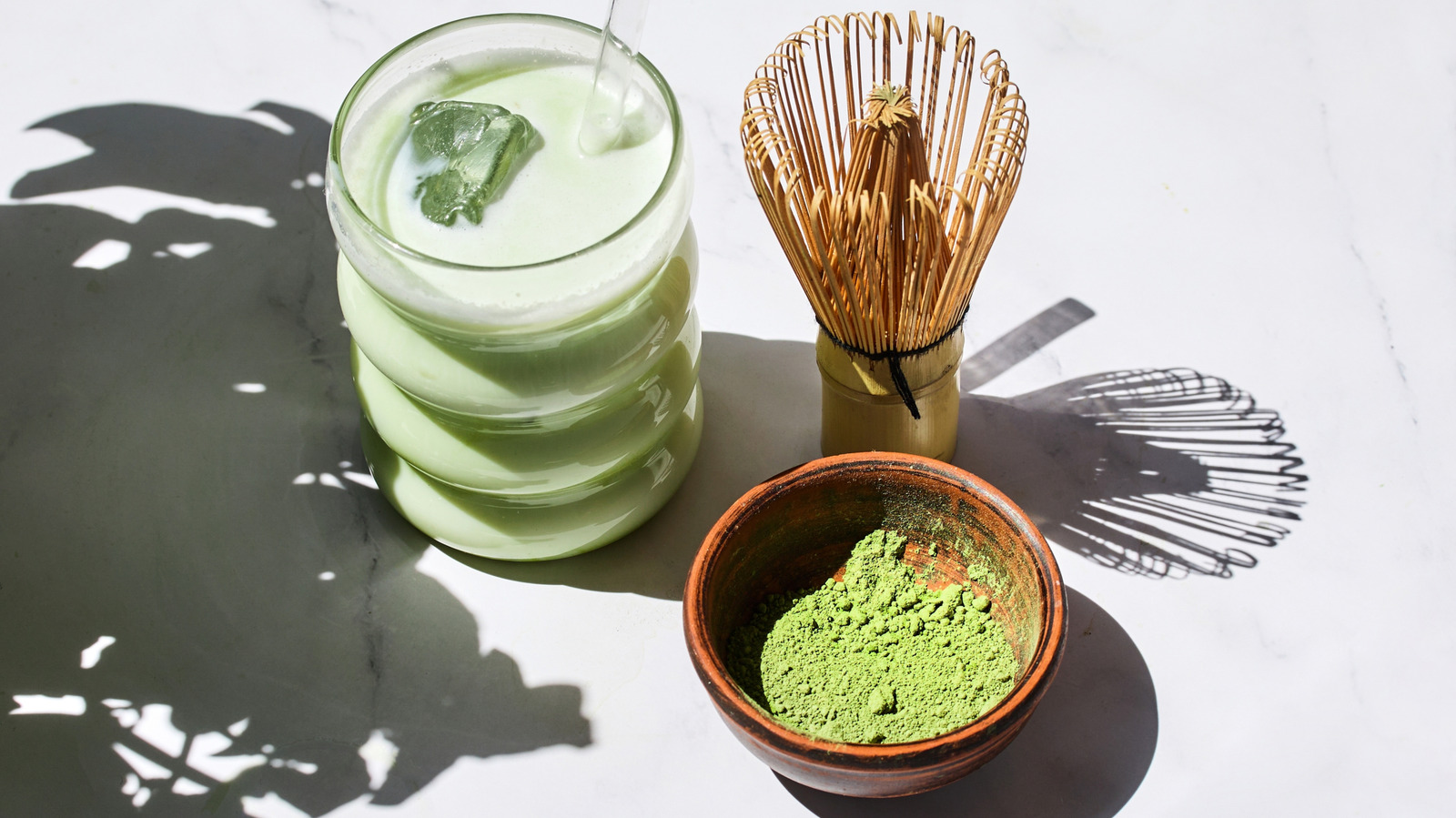
"This may contribute to matcha's higher caffeine content, as a cup contains about 70 milligrams. The average cup of black tea, meanwhile, has only about 47 milligrams. Both of these numbers can vary based on several factors, but as a general rule, matcha is more caffeinated than black tea. It's also more caffeinated than other varieties of green tea, which average 29 milligrams per cup."
"While matcha has more caffeine than other teas, the caffeine content is still dwarfed by other drinks; namely, coffee. For instance, the average cup of black coffee can have 120 milligrams of caffeine, nearly double the amount of a cup of matcha. In addition, a single ounce of espresso can have 63 milligrams of caffeine, which equates to over 500 milligrams per cup."
Matcha is green tea made from ground leaves whisked into hot water, so the tea solids are consumed directly. A typical cup of matcha contains about 70 milligrams of caffeine, compared with about 47 milligrams in black tea and 29 milligrams in other green teas. Caffeine levels can vary based on several factors. Decaffeinated matcha options exist, including brands like Caff Off that sell culinary and flavored decaf matcha. Coffee contains substantially more caffeine: an average cup of black coffee can have about 120 milligrams, and one ounce of espresso can contain about 63 milligrams, equivalent to over 500 milligrams per cup if scaled.
Read at Tasting Table
Unable to calculate read time
Collection
[
|
...
]